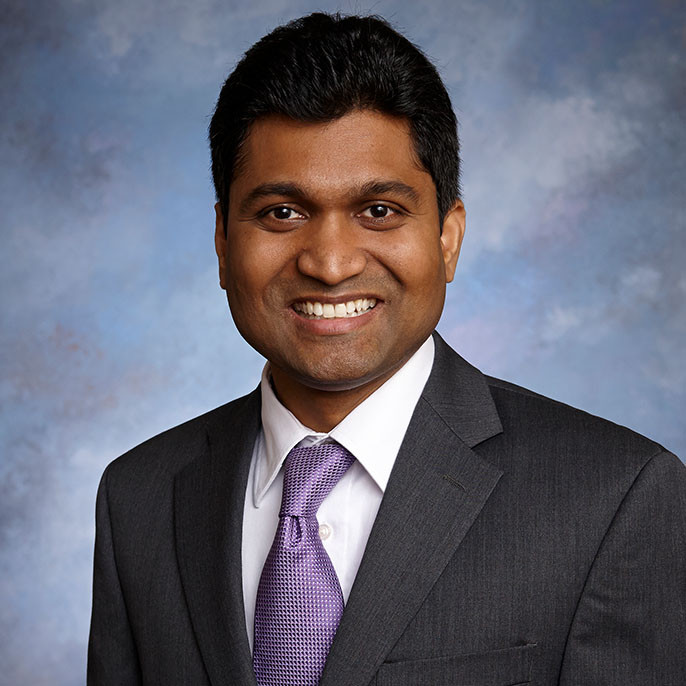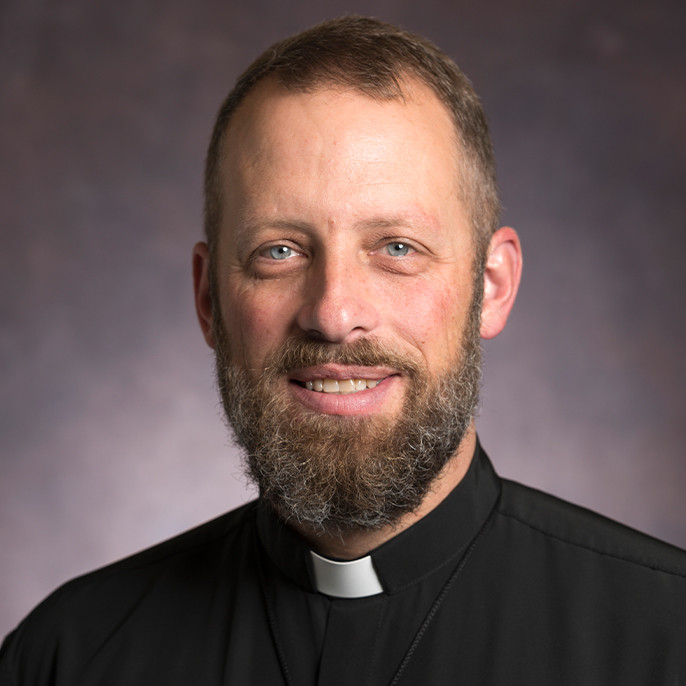UP employs outstanding faculty members, many of whom quickly sprang into action in March to move their courses online and continue UP’s mission during a global pandemic. We recently connected with Pamplin School of Business faculty Naveen Gudigantala, Ph.D., Associate Professor in Operations and Technology Management. Hear what he learned from the spring semester, creative approaches he is taking to engage students in new ways, and advice for the fall semester.
What did you learn from moving everything online in the spring?
I have learned that it is possible to pull off a successful course in the most challenging of circumstances if everyone approaches the process with dedication, hard work, flexibility, and empathy for each other. When we had to transition to online learning, I had to quickly assess the requirements of my students and the challenges they faced, and accordingly design the remainder of the course. My students were understanding of the situation, embraced the online environment, and did their best. Overall, this experience taught us that being nimble and adaptable can really help make the best out of any situation.
It also gave me an opportunity to assess the strengths and weaknesses of online instruction. In particular, I now have a better understanding of academic technology tools, the type of instruction that works best for graduate and undergraduate classes, and how to make the best use of technology for overall student success. I strongly believe that the expertise we are gaining in using technology for learning and collaboration will forever change the way education will be imparted. Ultimately the great positive I see is that everyone is gaining more skills and learning to be more resilient. These are valuable life lessons to me and hopefully for my students as well.
Our current situation has forced faculty to be innovative and find new ways to engage students. How have you adjusted to and maximized teaching online?
My guiding principle was to be empathetic to student needs and yet create a learning environment that achieved course objectives. All my teaching innovations were guided by this principle. The motivation to not compromise on student learning meant that I had to learn some new technologies on the fly (e.g., features in Moodle and Zoom), teach some more to students (e.g., how to record and upload presentation videos), and also a transition that was well-thought-out, smooth, and clear to students. I created a consistent set of expectations for the rest of the semester, made the learning website organized and easy to follow, and made myself extensively available, including sharing my mobile phone number with students. I have made need-based exceptions to students on their course-deliverable submissions which I would normally not do in a regular semester. Also, I had to make adjustments to the way the tests were given. Being flexible due to student needs helped students to perform to their best in the courses. From my end, this process necessitated putting in a lot of extra hours to create videos that are of similar quality to classroom teaching, reworking homework assignments, and being available on online office hours to work with students that needed extra help to understand and apply the concepts.
I think what would generally take multiple years for me to experiment and learn these things, I did in a span of merely six weeks. I think the resulting innovation will be very profound; I believe there will be few canceled classes on campuses now. Previously, whenever there was a snow event or when instructors had to travel to conferences there were occasional canceled classes. But now instructors across the board are well-equipped to leverage technology. This will be a massive strength to appropriately use technology to improve educational outcomes.
What tips do you have for students for fully maximizing their experience in the fall with the blend of in-person classes and remote instruction?
During the transition to online learning during the spring semester, I observed that many students embraced the change quite admirably rather than fight it. I can tell that many more instruction changes are on the way. Students who are ready to accept the changes and adopt them will be better able to navigate this new environment. Given the social distancing rules expected to be in place, some of these changes will be related to how classes will be delivered by different instructors, how discussions will be conducted in the classroom, and how students get to collaborate. So good planning will be key to students’ success. Also, all the instructors are focused on your success. So please feel free to communicate with your instructors on any questions and use the office hours to your advantage. The reliance on technology will be very high, so have a good computer to help you with your coursework.
Is there anything else you would like parents to know?
At UP, we take great pride in delivering high-quality education. Regardless of the current circumstances, we are working hard to empower ourselves and our colleagues to plan for a successful new academic year. Although we cannot control everything, you can count us to be dedicated, hard-working, and committed to your student’s success. You can expect us to be innovative, creative, and yet highly empathetic to the needs of our students. With your support, we hope to have a great academic year. Thank you for your faith in UP.

Naveen Gudigantala, Ph.D., serves as Associate Professor in Operations and Technology Management for UP’s Pamplin School of Business Administration. Some of his courses include business analytics, data science, operations and technology management, systems analysis, and decision modeling.

